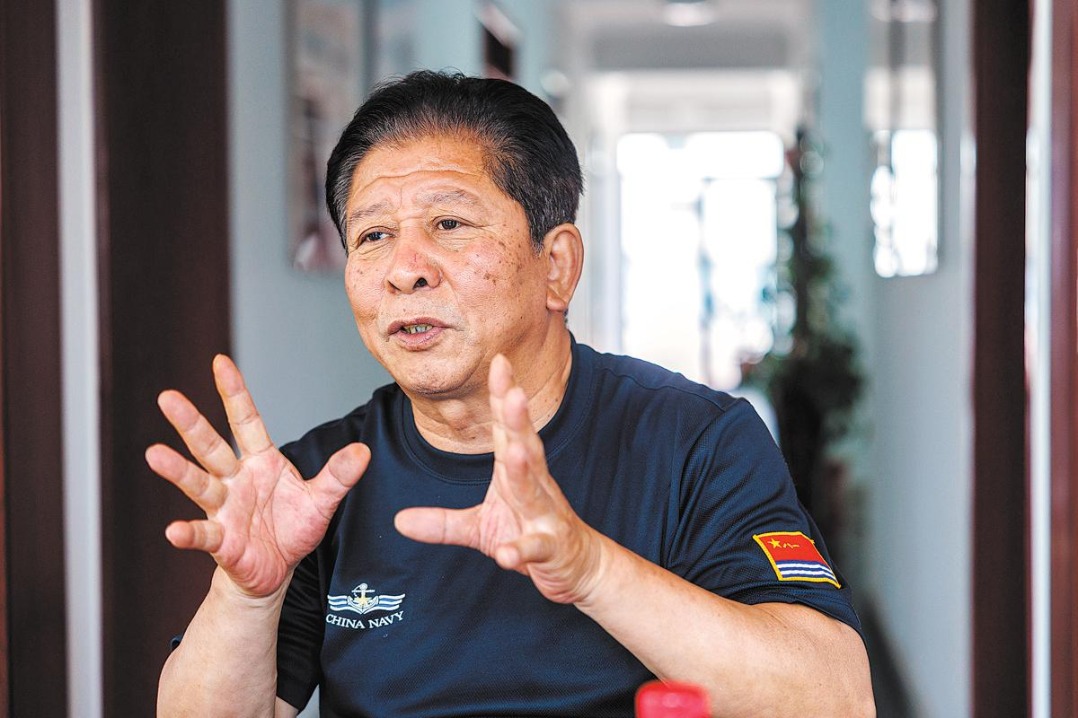3-child policy proposed as society ages


A key meeting of the Communist Party of China unveiled on Monday a policy that would allow all couples to have up to three children, in place of the current universal two-child policy, in a bid to cope with an increasingly aging society. It also pledged stronger support for families.
The decision signaled a stronger emphasis from the nation's top leadership to stabilize births and respond to the aging population after recent national census data showed an aging demographic structure, analysts said.
It was announced after the meeting of the Political Bureau of the CPC Central Committee heard a report on major policy measures to actively address the aging population during the 14th Five-Year Plan (2021-25) period and reviewed a decision on improving birth policies to promote long-term balanced population growth.
Xi Jinping, general secretary of the CPC Central Committee, presided over the meeting.
The meeting highlighted the need to carry out a national strategy to proactively cope with the aging society, including steps to introduce phased-in delays to the retirement age and promote the unified national management of basic old-age insurance funds.
The nation will improve the multilevel social security system for the elderly and explore the establishment of a long-term nursing insurance mechanism framework, according to a summary of the meeting.
It called for quicker steps to develop an elderly care service system and a health support system that coordinates the development of home care, community services and professional institutions and integrates elderly care with medical and health services.
The meeting urged the authorities at various levels to scale up their fiscal input, with steps to improve financial investment policies and improve the funding mechanism from multiple channels to support the growth of the elderly care sector.
The policymakers highlighted the significance of a three-child policy and its support measures in improving the demographic structure and maintaining China's edge in human resources.
They stressed the need for unified policymaking in terms of marriage, births, parenting and education, with stronger measures to guide young adults on issues related to marriage and family values and to target unhealthy social conduct during wedding ceremonies and excessive betrothal gifts.
The level of services to ensure good prenatal and postnatal care must be improved, and a child care service system that benefits all families will be established, the summary said.
The meeting called for greater equality in education and an enhanced supply of high-quality education resources to reduce families' education expenditure, saying that more incentives in taxes and housing will be rolled out and the legitimate interests of women in the job market will be safeguarded.
The policymakers also pledged to continue with aid packages for one-child families and rural families with two daughters from before the nation adopted the universal two-child policy in 2016, saying that the nation will establish and improve various policies for such families under the family planning policy.
China's latest national census data, published in May, showed a fertility rate of just 1.3 children per woman in 2020, which was on a par with aging societies like Japan.
The nation has adjusted its population policies twice since 2012, allowing couples, of which one partner is an only child, to have a second child in 2013 and carrying out a universal two-child policy starting in 2016.
Lu Jiehua, a professor of social demographics at Peking University, highlighted the need to give adequate guarantees in terms of the reproductive rights of women and allow them to give birth without any burden as the nation moves to bolster fertility rates.
Yuan Xin, a population scientist at Nankai University in Tianjin, said a three-child policy will serve to boost the fertility rate, and a new package of socioeconomic measures would be required to adapt to the policy shift.
He said the new policies must cover children, parents and seniors, to improve the financial situation of couples planning to have children and help elderly people live better lives.
- NW China's UNESCO-listed grotto site temporarily closed amid heavy rain
- Emergency response to flooding activated for NW China's Qinghai
- Hefei powers China's AI ambitions
- International students embrace ancient fashion at Shenyang Imperial Palace
- Hong Kong, Macao representatives to attend reception on CNS Shandong
- Chongqing rivers form yin-yang spectacle





































